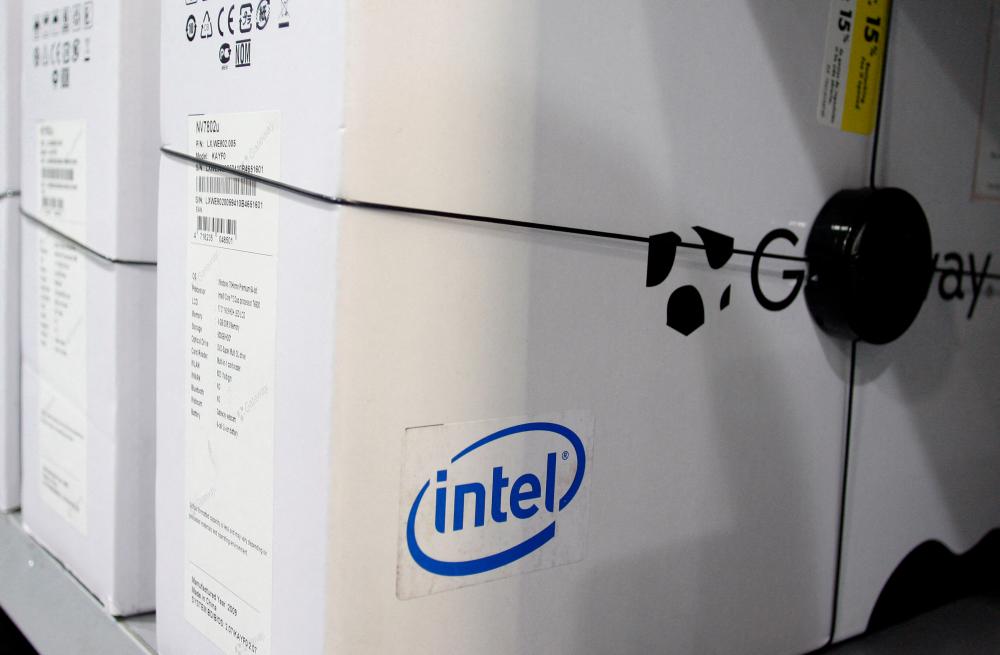SAN FRANCISCO: Intel Corp on Thursday (April 27) posted a massive fall in sales for the first quarter of 2023 because of a steep drop in the demand for semiconductors – or chips – that power personal computers and smartphones.
Intel’s revenue fell 36% to US$11.7 billion (RM52.1 billion) in the three-month period and the semiconductor giant posted a loss of US$2.8 billion, its biggest ever for a quarter.
Rising prices, a global chip glut and poor demand for hardware also punished Intel’s rival Samsung, which earlier on Thursday reported its worst quarterly profits in 14 years.
But Intel shares rose 5.6% in extended trading after the executives on a conference call estimated that adjusted gross margins will climb above 40% in the second half, having hit historic lows in the first half of the year.
Intel estimated second-quarter earnings below Wall Street forecasts despite its greater sales optimism, a sign that the company is still struggling to make money despite early signs of a recovery in global chip demand.
The company forecast a second-quarter revenue range with a midpoint of US$12 billion, above analysts’ consensus estimate of US$11.75 billion, Refinitiv data showed.
Intel chief executive Pat Gelsinger said in an interview he was “seeing some green shoots, increasing stability in the PC market as inventories have stabilised”, adding that he expected the company to hold its position in the data centre business.
But Intel predicted second-quarter adjusted losses of 4 cents per share, worse than the 1 cent per share profit that analysts had estimated, according to Refinitiv data.
Intel has also ramped up shipments of its most powerful data centre chip, Sapphire Rapids, whose more than one-year delay had allowed rival Advanced Micro Devices and ARM-based server CPU makers to take market share from the company.
Intel has a commanding market share for PC and server processing chips and the company has planned to spend billions of dollars to build out new manufacturing hubs and improve product design and performance.
Revenue from its data centre and AI group fell 39% to US$3.7 billion. Client computing group revenue, which includes PCs, dropped 38% to US$5.8 billion.
Intel is one of the world’s leading semiconductor makers that makes a wide range of products, including the latest generation chips along with Taiwan’s TSMC and South Korea's Samsung.
It was also affected by falling demand for chips that power data centres and is struggling to compete with Nvidia for the semiconductors that undergird ChatGPT-style generative AI, a major new and chips-hungry sector for the industry.
The chips industry is well known for its volatility, with demand and supply see-sawing with the dips and rises in the world economy. – AFP, Reuters











